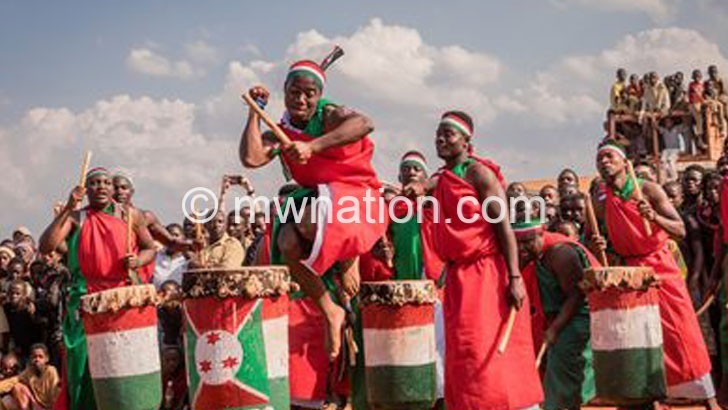Tonse’s 100 days in Office: Usi leads art, cultural shift
Oftentimes the Ministry of Art and Culture has been accorded the attention and support it requires to allow its functions flourish seamlessly.
This has been attested by the little significance that political parties attach to the two sectors as little is mentioned in their manifestos.

The same can be said of Malawi Congress Party (MCP) manifesto, which says nothing about development of the sectors once the party is in power.
The same lukewarm attitude spills over to administrations in power as rarely adequate funding is directed to the line ministries to realistically push for a shift in the operations of the sectors to significantly contribute to the country’s economy.
Malawi Writers Union (Mawu) president Sambalikagwa Mvona, an arts veteran, said for long the potential of the industry has been nutralised because of lack of interest from the governing elites.

He said: “They haven’t shown what other countries show. To make it worse, our line ministries have been very afraid to table these matters in parliament. We are 20 or 30 years behind in terms of progress in the sector.”
Mvona said in Malawi, for instance, the publishing industry produces a maximum of five books annually while in other countries they can reach as much as 100.
“We are part of the system and if we are being left out that means things are not working,” he said.
The appointment of Michael Usi as Minister of Tourism, Wildlife and Culture which also houses Arts, brought a fresh feeling of hope.
As a well-known actor and proven administrator, he was entrusted with the responsibility of overseeing a transformation in a sector the Tonse Alliance-led government has touted loudly and placed as its prime pillar.
And for the first time, there is a presidential adviser on arts, a position being held by seasoned artist Lucius Banda. Now, 100 days into his stewardship, what changes has Usi rung? Has he sustained the hope that his appointment aroused in people?
Legendary actor Eric Mabedi, who is also National Theatre of Malawi (Ntam) president, said Usi’s first three months in office has inspired hope. He said the creative industry has for long been lacking many things and it is encouraging that some have been attended to already.
He said: “One of the things that we have been crying for is the artists’ welfare fund. We live on hand to mouth as there is no pension or any scheme that can sustain us adequately when we can no longer perform.
“We have been encouraged that within a short time this fund has been operationalised. For once, we have also seen a serious commitment in setting up the Arts Council. Work on this is already off the ground. I can rate his performance at 90 percent.”
Apart from establishment of the artists’ welfare fund, Usi has also ensured that renovations of Blantyre Cultural Centre are fast-tracked. He has also established a working relationship between Malawi University of Science (Must) culture and heritage department and his ministry.
He said in an interview: “The process of revisiting the Miss Malawi programme has also begun so that it can be brought back to its glory days. We have also facilitated the setup of a platform where Cosoma can share with Malawians on its use of funds to enforce accountability.”
Usi said the ministry is actively looking for funds to engage artists in carrying out Covid-19 sensitisation campaigns. He said the main focus now is to ensure that art and culture become a tourist attraction by ensuring that all classes of people participate.
“Currently there is a general perception that art and culture is for the less-educated. Another approach is to place the youth in the driving seat as we push for that agenda to bring art and culture at the centre,” he said.
The minister revealed that apart from lobbying for adequate funding, his ministry will also continue to focus on writing proposals to development partners and local donors so that they can meet the deficit in their budgets.





